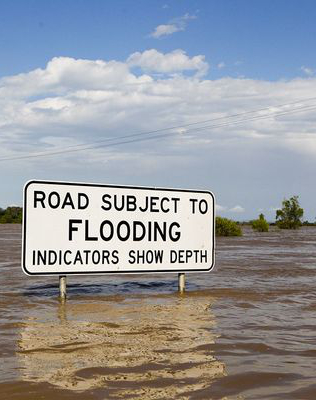Flood review could forecast
 Researchers are looking at ways to predict megafloods.
Researchers are looking at ways to predict megafloods.
Forecasting the catastrophic and unprecedented flooding events has been a major challenge due to their rarity and the lack of historical data.
However, a recent study published in Nature Geoscience suggests a novel approach to anticipate such devastating occurrences in Europe.
Researchers examined 510 megafloods that occurred across Europe from 1810 to 2021.
These megafloods represent flooding events that far exceeded anything previously observed in a specific region, often resulting in severe damage and loss of life.
The key insight from the study is that regions with similar hydrological characteristics tend to experience very similar megaflood events.
In fact, the researchers found that approximately 95.5 per cent of observed megafloods could have been anticipated by studying events in hydrologically similar areas.
This means that, when it comes to predicting megafloods, regions can gain valuable insights from the experiences of similar regions elsewhere.
By analysing historical data and observing past megafloods in one location, experts can make more accurate predictions about the magnitude and impact of potential megafloods in other similar areas.
The implications of this research are significant.
It suggests that a continental-scale approach to studying megafloods could improve the ability to prepare for and defend against these catastrophic events.
By moving beyond local catchments and considering data from different locations and regions, authorities and communities can better assess flood risk and develop more effective flood defence measures.








 Print
Print